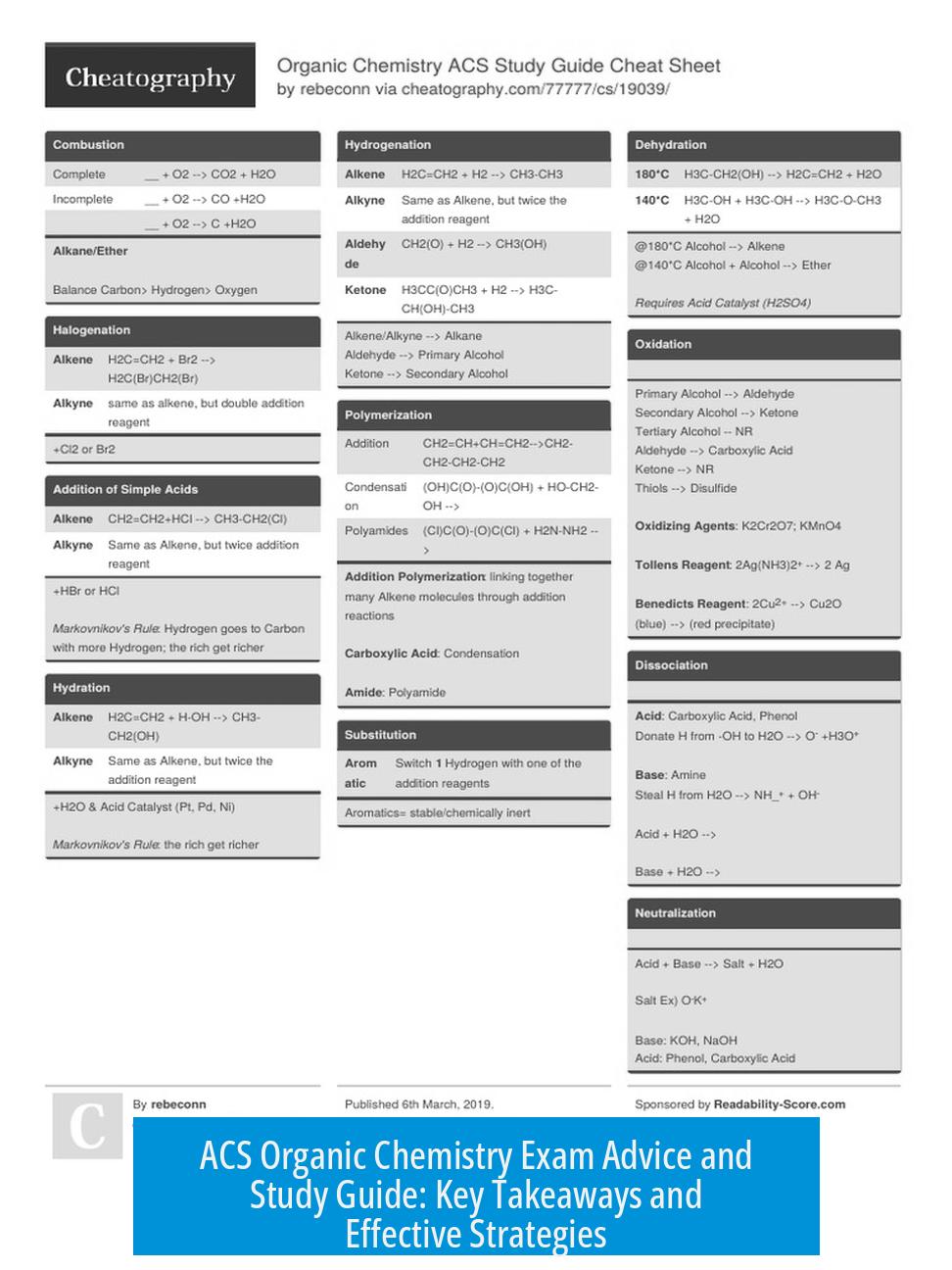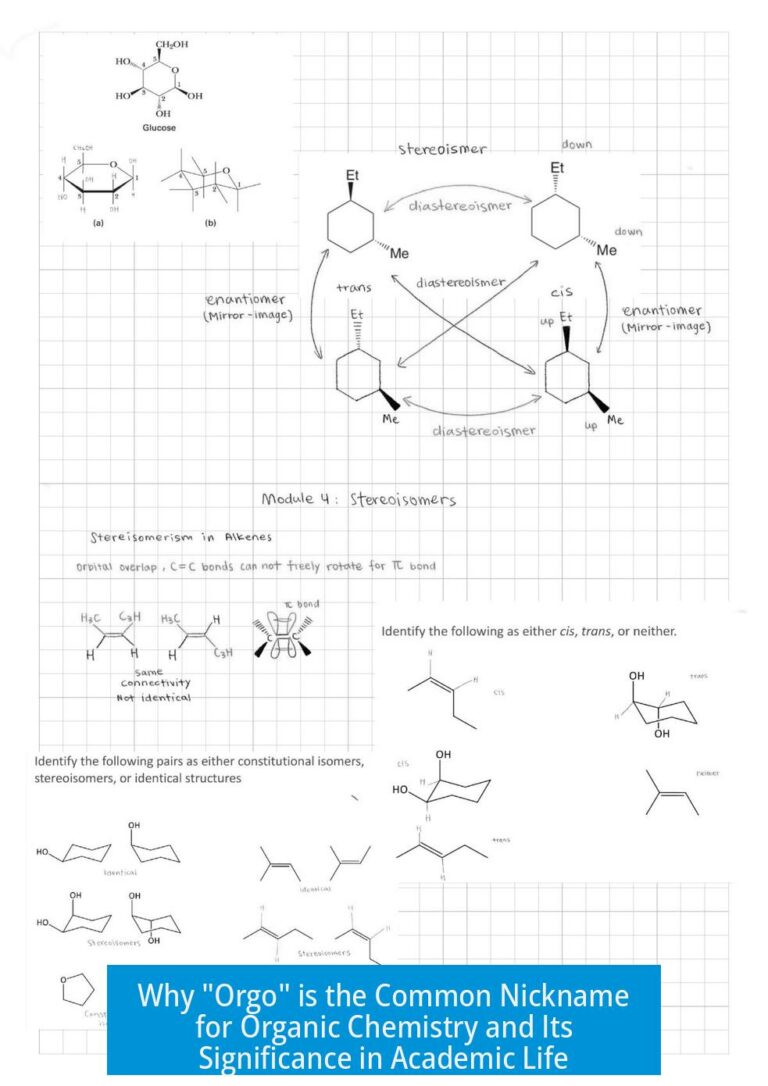ACS Organic Chemistry Exam Advice and Study Guide
The ACS Organic Chemistry Exam focuses heavily on the stability of molecular structures, stereochemistry, and regiochemistry. Candidates should prioritize understanding E/Z isomers, R/S configurations, chair and boat conformations, and Fischer projections. These topics form the backbone of many questions on the exam.
Key Content Areas
- Structural Stability: Determine which molecules are more stable based on their structure.
- Stereochemistry and Regiochemistry: Master the identification of stereochemical descriptors like E/Z and R/S. Familiarize yourself with conformational analyses (chair/boat forms) and projection methods (Fischer projections).
- Hydrocarbons: Alkanes appear minimally. Focus study time mainly on alkenes and alkynes.
- Functional Group IR Spectroscopy: Learn IR spectral shapes and absorption ranges of key functional groups. These questions offer accessible points on the exam.
Effective Study Strategies
Practice is essential, but focus study efforts carefully:
- Synthesis Practice: Practicing synthesis can be helpful but expect simpler synthesis questions on the actual exam.
- Use Alternative Question Banks: The official ACS guide often does not reflect actual exam difficulty or style. Instead, rely on trusted online resources such as Michigan State University’s virtual textbook problem set (link).
- Obtain Study Guides: Some students find additional study guides through online marketplaces or the “Bay” platform as informal options.
- Consider Course Difficulty: Perceptions of the exam’s hardness correlate with how challenging the organic chemistry course itself was.
Additional Tips
- Review the stability of different intermediates and products efficiently.
- Study IR spectra of functional groups since these questions are straightforward and recurrent.
- Maintain focus on stereochemical details; these often decide between closely related answer choices.
Summary of Key Takeaways
- The exam emphasizes stereochemistry, regiochemistry, and molecular stability.
- Prioritize alkenes and alkynes over alkanes.
- Practice with reliable question resources over the official ACS guide.
- Know important IR spectral regions and shapes for functional groups.
- Course difficulty impacts how students perceive the exam challenge.
What topics should I focus on for the ACS Organic Chemistry exam?
Focus mainly on stability of structures and stereochemistry. Know E/Z, R/S configurations, chair/boat conformations, and Fischer projections. Alkanes appear less, so emphasize alkenes and alkynes.
Is practicing synthesis important for the exam?
Practice synthesis but don’t overdo it. The exam tends to have easier synthesis questions than expected. It’s still good to review, but focus more on other core topics too.
Are official ACS exam guides useful for preparation?
The official guide may not reflect the actual exam well. Alternate resources, like the Michigan State University website with practice problems, offer better preparation aligned with exam style.
Any tips for studying IR spectroscopy for the exam?
Study the shapes and ranges of functional group IR spectra. They come up occasionally and can earn easy points. Understanding key peaks is valuable to answer these questions confidently.
Where can I find a good study guide for the ACS Organic Chemistry exam?
Some users recommend checking The Bay for study guides mentioned by peers. Also, online problem sets like the ones at Michigan State University help strengthen your understanding effectively.





Leave a Comment